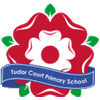Mathematics
When developing the mathematics curriculum at Tudor Court Primary School, we took much of the content and principles of ‘Mastery’ from the National Curriculum and the National Centre of Excellence in the Teaching of Mathematics (NCETM). NCETM defines mastery as: ‘something we want pupils to acquire, or rather continue acquiring throughout their school life.’ Research shows that children taught following a mastery approach have a much deeper and more connected understanding of mathematics and can not only carry out procedures but understand and explain the maths underpinning them too. The approach is based on a large amount of research, some of the key articles can be found here: https://www.ncetm.org.uk/teaching-for-mastery/mastery-explained/supporting-research-evidence-and-argument
At Tudor Court, we aim to:
• Develop a deep, long-term, secure, and adaptable understanding of mathematics
• Develop a positive attitude to maths as an exciting and attractive subject in which all children gain success and pleasure
• Develop an ability in the children to express themselves fluently, to talk about the subject with assurance, using correct mathematical language and vocabulary
• Develop mathematical understanding through systematic direct teaching of appropriate learning objectives
• Encourage the effective use of maths as a tool in a wide range of problem-solving activities within school and, subsequently, adult life
• Develop mathematical skills and knowledge and quick recall of basic facts
• Develop a range of efficient mental calculation strategies for all operations and be confident using written calculation methods for all operations
Curriculum Objectives
Planning in mathematics aligns with the structures and recommendations outlined in the National Curriculum Programme of Study. Our curriculum is designed with the ambitious goal of all pupils achieving mastery in mathematics, developing a love of the subject and an ability to connect learning and solve problems, and knowing that they can succeed in mathematics whilst at Tudor Court and in the future.
Mathematics is taught in mixed ability groups that focus on the life skills of collaboration, growth mindset, resilience and problem solving as much as discrete mathematical knowledge. Pupils who grasp concepts rapidly are challenged through rich and sophisticated problems and develop their understanding and social skills by supporting others. Those pupils who are not sufficiently fluent with earlier material are provided with opportunities to consolidate their understanding, including through additional pre-lesson and post-lesson practice.
Resources
One of the main aspects of ‘teaching to mastery’ is the concrete-pictorial-abstract approach (CPA) which insists that children understand key concepts using concrete manipulatives, are exposed to different representations and can then abstractly apply this understanding. Teachers must explicitly make links between the three stages during teaching. All children, regardless of ability or age, are exposed to various representations due to planned conceptual variation. Teachers should remove resources at an appropriate stage where conceptual understanding is secure, so they are not used procedurally during calculations. The NCETM Pd planning materials facilitates appropriate coverage. Teachers are skilled in developing these ideas and using a wide range of high-quality resources to ensure every learning intention is taught to maximise learning.
Lesson design
The structure of a lesson will vary based on the topic covered and the needs of the pupils. Steps throughout a lesson are small to ensure that all pupils understand the fundamental concepts before they are exposed to new ones. It is important that nothing is assumed and that all key prior knowledge is revisited as appropriate. It is expected that all pupils can apply their understanding of a topic because of their exposure to rich and deep mathematical problems. During a lesson, children will be allowed to practise new skills, apply these skills in different ways because of variation or within a different concept and reason and explain the concept. They include a variety of representations needed to introduce and explore a concept effectively and set out related teacher explanations and questions to pupils.
Pupil support and differentiation
Most children in a class move through the programme of study at broadly the same pace and are exposed to the same questions during lessons. Taking a mastery approach, differentiation occurs in the support and intervention provided to different pupils, not in the topics taught, particularly at earlier stages. Children in all classes sit in mixed ability pairings to allow collaborative learning, exposure to different opinions about the same work and regular opportunities for discussion of answers to support pupils’ reasoning skills and check and deepen their understanding. Learners are supported by the structure of the lesson, their peers, additional adults, and scaffolds provided by teachers. Children are extended because of higher-order questioning where conjectures and generalisations are required and consistent exposure to rich tasks, rather than acceleration to new content. It is expected that all pupils will experience challenge in a lesson.
Professional development and training of teachers
Providing high-quality professional development is a constant goal for our school to ensure we continuously improve our teaching quality and the children’s learning. Our teachers engage in collaborative planning and are continually seeking to improve their effectiveness.
Useful Resources





